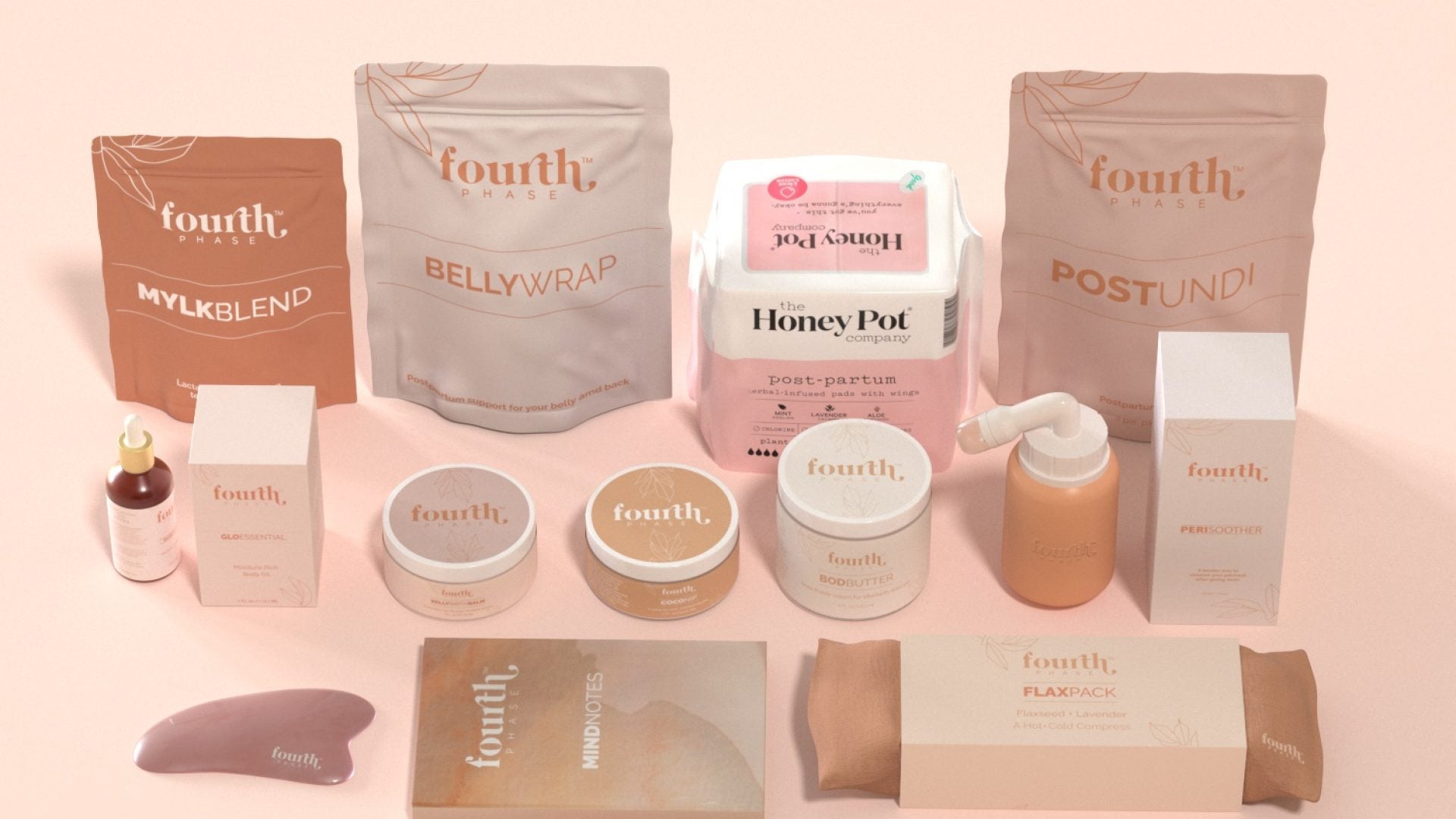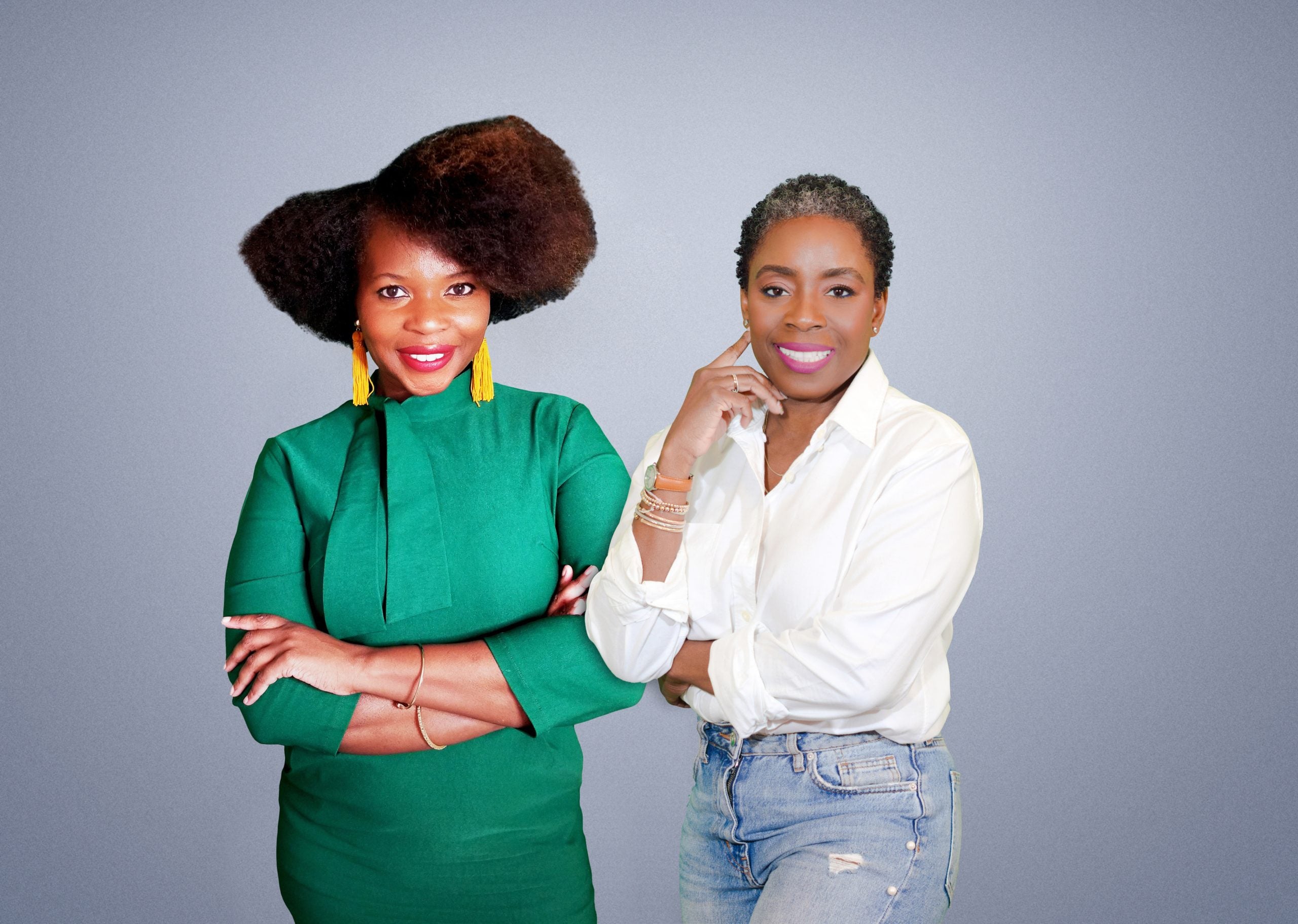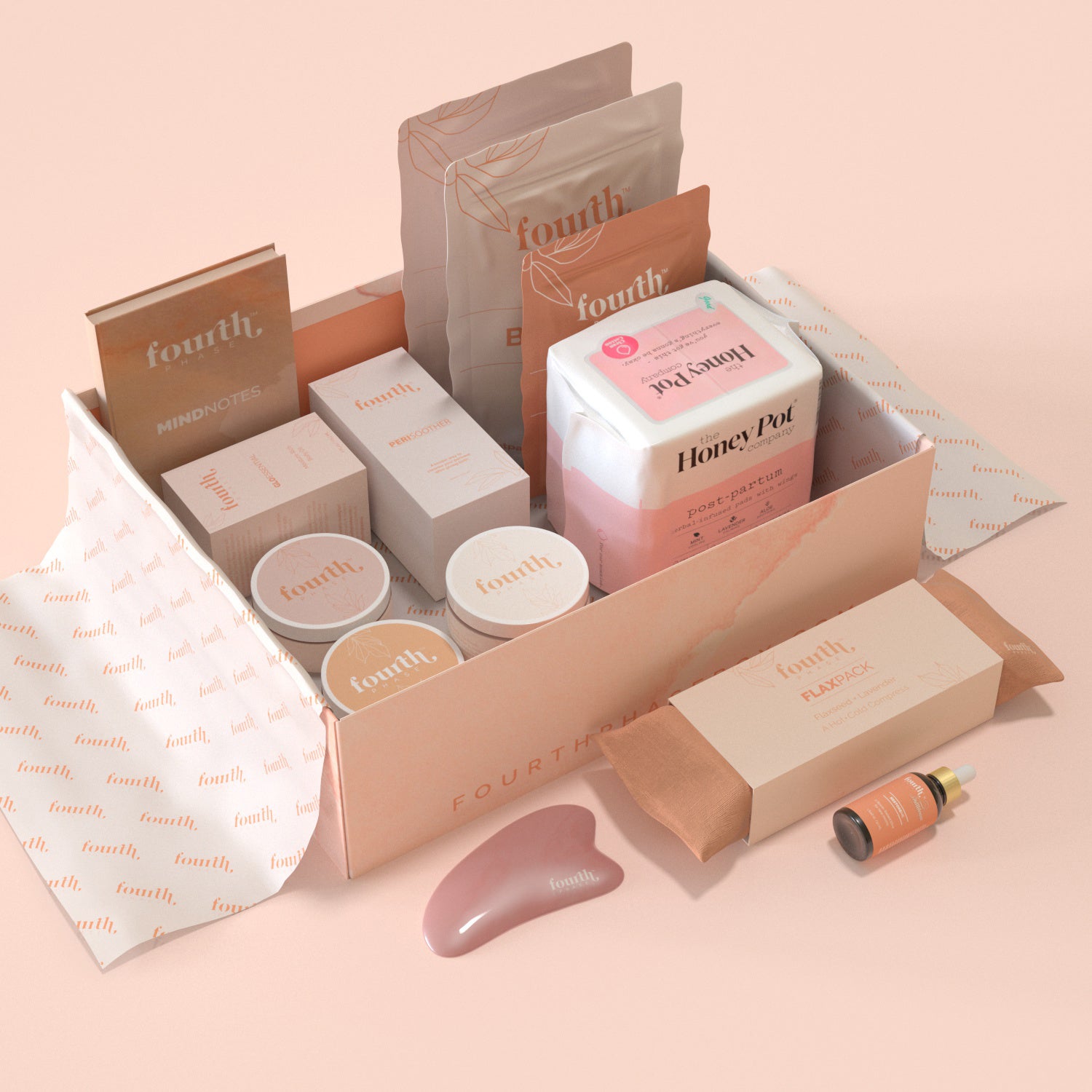
Yes, the period after a woman gives birth can be full of precious moments bonding with her new bundle of joy, but it can also be an exhausting time in which a woman needs physical and emotional healing. But does a new mom get time for that after the birthing process? Does she get the chance to care for and pamper herself after going through such a life-altering experience? Rarely. So she enters what some call the “fourth trimester,” the post-natal period in which she often needs even more care than the previous three trimesters. Now, thanks to the Fourth Phase Afterbirth Box, new mamas can now heal and get the essential self-care they need.
Created in 2020 by Nana Eyeson-Akiwowo and Marcia A. Cole, two Black former magazine and digital editors known for their philanthropic work, the Fourth Phase Afterbirth Box provides a new mom with a lovely care package full of thoughtful and significant products to help make the after-delivery chapter of their lives much easier. “That time period is an onslaught of emotional and physical things happening to your body and it can last up to 12 weeks and for some mothers, over a year,” says Eyeson-Akiwowo. “Many mothers express losing a sense of self and some experience postpartum depression which then comes with stigma around feeling that way. And many moms have no idea what they need post-delivery. The Afterbirth Box is like a big hug for them.”

Eyeson-Akiwowo came up with the idea of Fourth Phase during one of her annual charity missions to Ghana, her homeland, where she witnessed the lack of postnatal attention being paid to new moms. She vowed to do something about it and make a difference in the lives of these women. “Often, we focus on the pregnancy and the health of the baby—which is of the utmost importance—but society typically neglects the mental, physical and emotional wellbeing of new mothers. Unfortunately, this happens to mothers across the world, and it has to stop,” she says. So Eyeson-Akiwowo asked Cole, a longtime friend, entrepreneur, and branding whiz to partner with her to create a company that would provide the tools and resources for new moms during the often-challenging postnatal period.
Each time an Afterbirth Box is purchased, another box featuring similar afterbirth care products is donated to either a new mother in Sub-Saharan Africa or a new mom experiencing homelessness in the U.S. Not only are new moms supporting themselves when they get a Fourth Phase box in the mail, but they are also supporting a new mother in need.
Depending on her delivery method, a new mum can receive a Fourth Phase Vaginal Birth Box or a Fourth Phase Belly Birth Box to assist in her body’s restoration. Each box is filled with 12 organic, nontoxic, and cruelty-free products from women-owned companies, including a belly wrap, body butter, nipple salve, and post-partum panties, as well as a digital download of affirmations designed to help a mom restore and rejuvenate her mind, body, and soul. “If a mom is having negative thoughts, the affirmations are meant to reground her and remind her of who she is. They can help bring her back to the center—back to her heart space,” says Cole.
The Afterbirth Box is designed for all mamas but can be especially beneficial for us—black women who often put the needs of everyone else in front of our own. “Women of color often do not take time for themselves,” says Cole. “We rarely take time to pause and think about what we’re going through. We’re too busy thinking about all we have to do and the people we have to support.”

But the Fourth Phase box as well as its website, which also includes valuable advice from doulas, midwives and OBGYNs, makes sure that our maternal health and needs are not ignored, as they often are, according to recent stats from the CDC, per 100,000 live births, there were 37.1 deaths among Black women, in comparison to 13.0 deaths among white women). “We want to be able to equip women with the knowledge and information they need to advocate for themselves and make more empowered decisions, so they know exactly what’s happening to their bodies after giving birth,” says Cole.